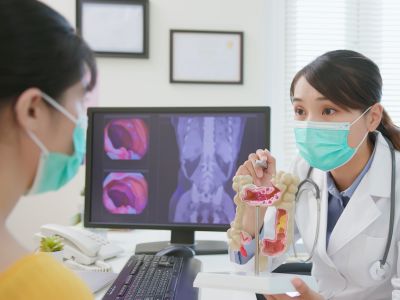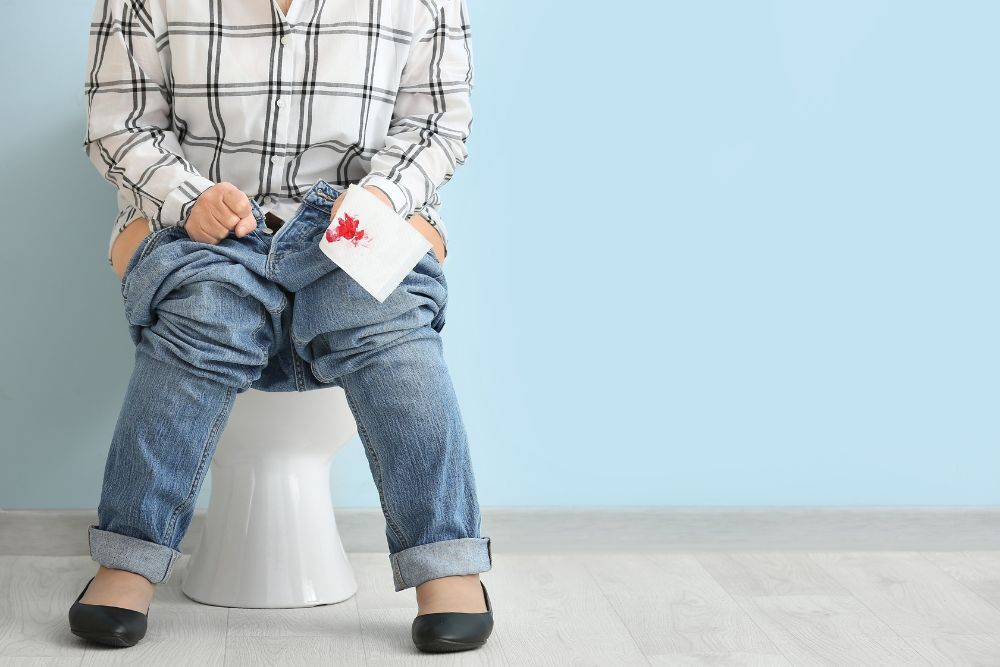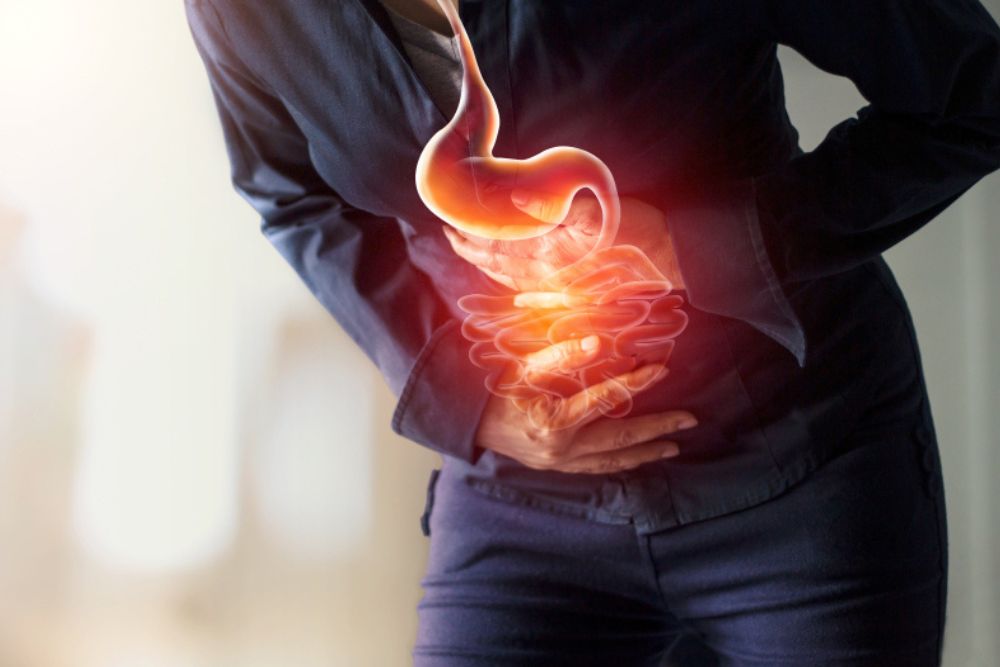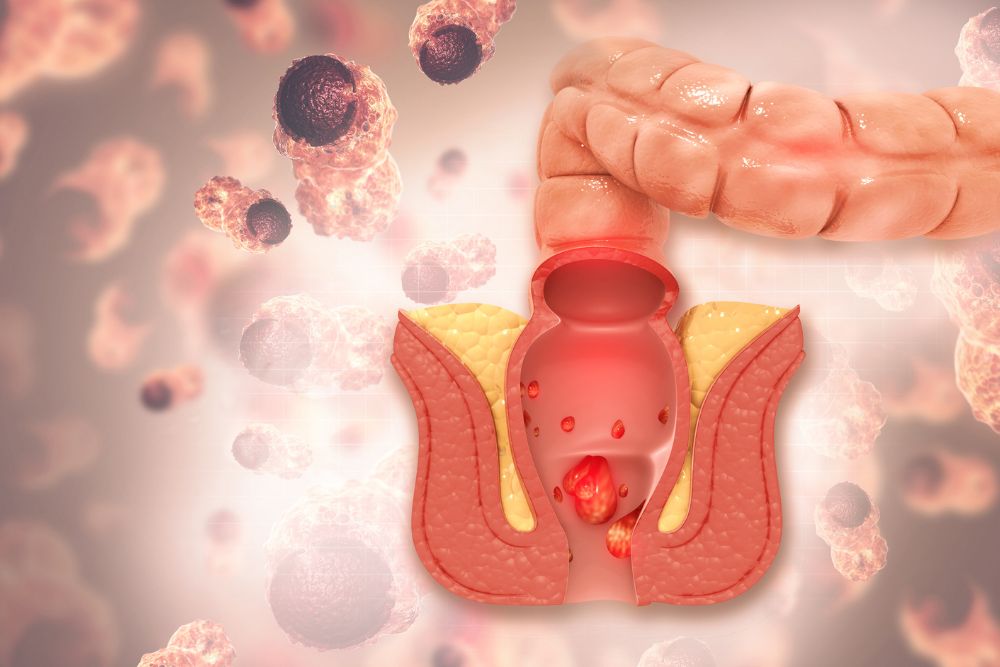What are the symptoms of colorectal polyps?
If you’re 50 years old or older, overweight, a smoker, or if you have a personal or family history of polyps or colon cancer, you are at a higher risk than most individuals of developing colorectal polyps. Ensure you consult a doctor to learn about the symptoms of colorectal polyps.
What are the symptoms of colorectal polyps?
If you’re 50 years old or older, overweight, a smoker, or if you have a personal or family history of polyps or colon cancer, you are at a higher risk than most individuals of developing colorectal polyps. Ensure you consult a doctor to learn about the symptoms of colorectal polyps.
Unusual growths of cells called colorectal polyps, also known as colon polyps, can develop in the colon or rectum, which are both components of the large intestine. The size, form, and type of these polyps might vary. Early detection and removal can aid in the prevention and development of colorectal cancer.
The majority of polyps are benign, which means they are not cancerous and do not immediately endanger your health. However, certain polyps have the potential to turn into colorectal cancer over time, which is why medical professionals urge those who present symptoms of colorectal polyps to get them checked out.

Unusual growths of cells called colorectal polyps, also known as colon polyps, can develop in the colon or rectum, which are both components of the large intestine. The size, form, and type of these polyps might vary. Early detection and removal can aid in the prevention and development of colorectal cancer.
The majority of polyps are benign, which means they are not cancerous and do not immediately endanger your health. However, certain polyps have the potential to turn into colorectal cancer over time, which is why medical professionals urge those who present symptoms of colorectal polyps to get them checked out.

Symptoms of colorectal polyps
In their early stages, colorectal polyps frequently show no symptoms, which is one reason many doctors fail to detect them. However, if specific types of polyps are present or they become larger, they may cause observable symptoms. The following are examples of colorectal polyp symptoms

01. Rectal bleeding
One of the most typical signs of colorectal polyps is rectal bleeding. Depending on where the polyp is located within the colon, the blood may be a bright red colour or appear darker

02. Anaemia due to iron shortage
Polyp bleeding can occur gradually over time without any obvious blood in your stool, resulting in iron deficiency anaemia, which can make you feel exhausted and out of breath

03. Abdomen pain
Large colon polyps can completely block a section of your bowel, causing severe stomach pain. If you’re experiencing the first two symptoms along with the third, it is best to contact a doctor

04. Changes in bowel habits
People who have colorectal polyps may notice changes in the regularity of their bowels, such as constipation, chronic diarrhoea, or may feel a sense of incomplete bowel movements
Risk factors of colorectal polyps
A good diet may lower the chance of getting colon polyps. A diet high in fruits, vegetables, and fibre-rich foods like bran cereal and beans may specifically help avoid colon polyps. To decrease the chance of developing colon polyps, it’s also vital to avoid a few food types. For example, it’s advisable to reduce the consumption of foods high in fat, such as:
Fried food
Red meats including beef and pork
processed meats such as hot dogs, sausages, and lunch meats
Treatments and prevention of colorectal polyps
If you do the following, you may be able to lower your risk of getting polyps:
- Quit smoking
- Exercise regularly
- Maintain a healthy BMI
- Avoid excessive alcohol consumption
- Consume 3-5 servings of fruits and vegetables daily
- Refrain from consuming red meat in excess and fatty and processed foods
A colonoscopy is used to remove colorectal polyps as part of the therapy process. It may be important to continue therapy and monitoring if cancer is found within the polyp or if it is of a high-risk kind.
A specialised surgical treatment called colorectal surgery is also used to address disorders that affect the colon, rectum, and anus. It is frequently employed to treat a variety of colorectal diseases.
At Sydney Gut Clinic, our team of highly experienced gastrointestinal specialists can help you with colorectal polyps symptoms. Schedule an appointment with us today.

